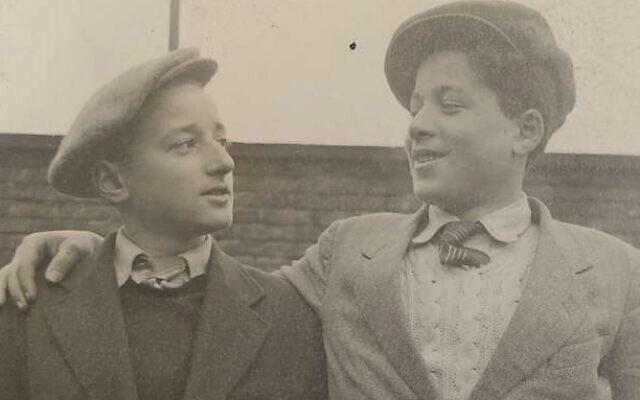“When I think back on my life I see a picture of my mother”
Holocaust survivor Ivor Perl was sent to Auschwitz aged eight. He tells all in a poignant memoir
When Ivor Perl BEM thinks back on what could have been and the losses he has endured, the first image that comes to mind is not of his father, his eldest brother David or his sister Raizel.
Neither is it of his brother Mordechai, his sisters Blume and Malka, his little brother Moishe or the youngest of his eight siblings, his little golden-haired sister Faigale, all of whom perished in the Holocaust.
“When I think back on my life, I see a picture of my mother. Not that I don’t think about my father, because of course I do, but my mother is always in my mind.”
That Perl, who was born into an Orthodox family as Yitzchak Perlmutter in Mako, Hungary in 1932, still feels the gaping absence of his mother’s love is unsurprising given that he was just a boy of 12 when his otherwise happy childhood was upended by the Nazis.
Indeed, the title of his poignant recently-published autobiography, Chicken Soup Under The Tree, is a nod to a loving, albeit unfulfilled gesture made by his mother to care for her children – and one of the last memories he has of her.
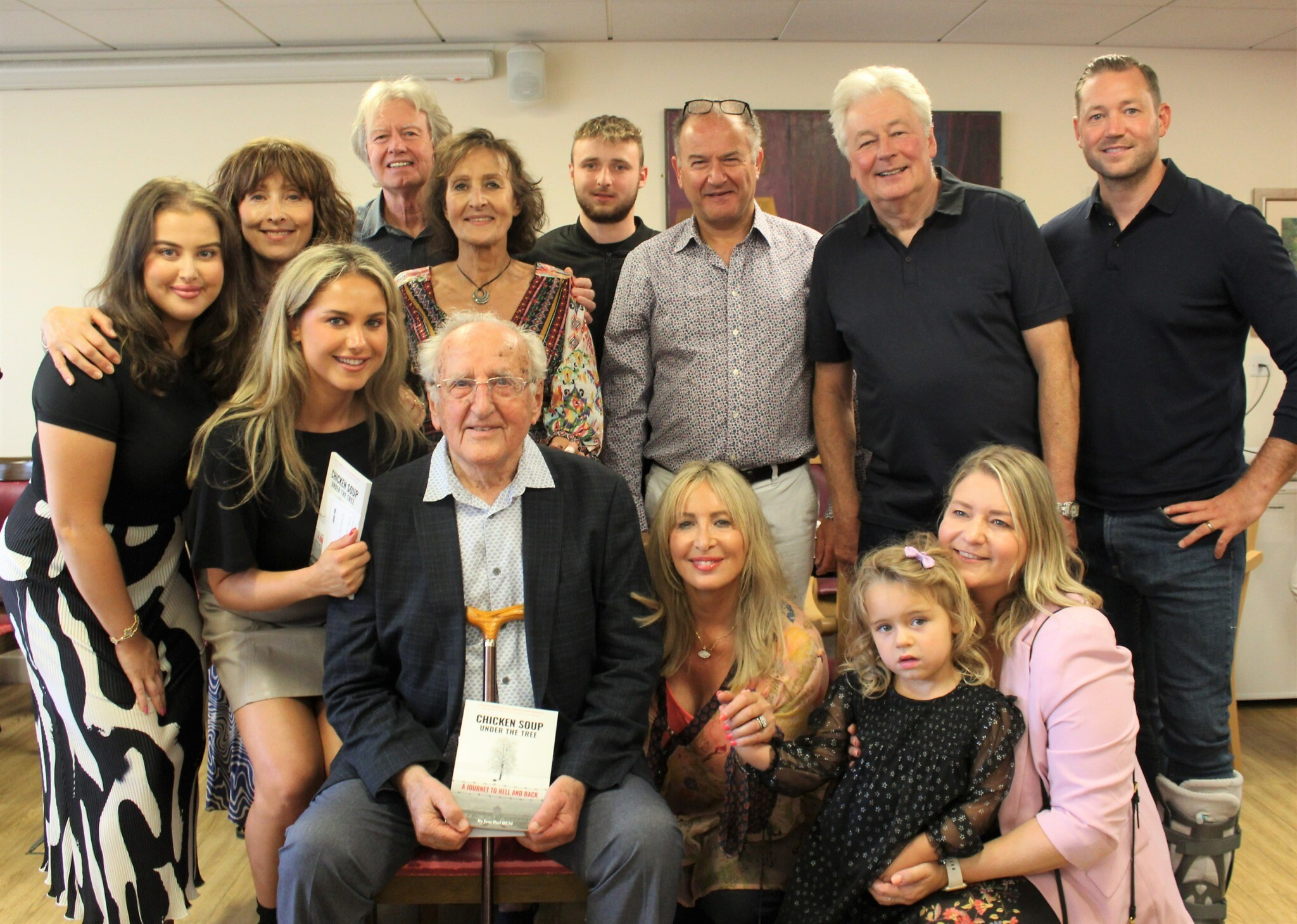
Having been separated from his father and his brother Mordechai, who were taken by the Nazis to become forced labourers, Perl and his family were moved into tents within a ghetto before being told they would be sent east on a transport to work on farms.
Perl’s mother cooked up a huge batch of chicken soup for the journey ahead that the youngster recalls desperately wanting to taste, but she would not allow it. She left it under a tree close to their tent to keep cool, but a few days later, in the chaos of being moved onto the deportation trains, the precious soup was left behind.
It might seem like an inconsequential detail, but decades on the memory still evokes a lingering sense of sadness for Perl, because in many ways it marked the beginning of the end for the life he had once known.
After enduring a nightmare train journey packed into cattle trucks, the family arrived in late April 1944 at their destination: the notorious Nazi death camp of Auschwitz. It was here that the young boy would be known as number 112021 for his duration at “literally hell on earth”.
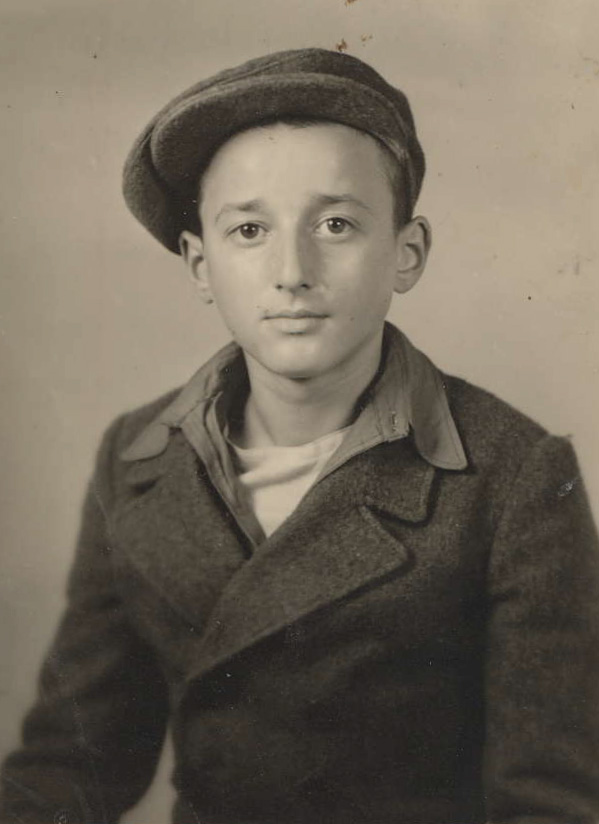
Perl, a resident at Jewish Care’s Selig Court retirement living apartments in Golders Green, recalls: “When we arrived at Auschwitz, women and children were ordered to go to one side, men and boys to the other. As we started marching, I ran over to my mother and she said, ‘What are you doing? Go back to your brothers.’
“I said to her, ‘Let me come with you, Mummy.’ But of course, she said, ‘No, you must go back to your brothers.’ And that was the last time I saw her.”
Perl, now 91, recalls seeing his mother holding the hands of Faigale and Moshe, flanked by his other three sisters, walking away and disappearing through a door.
In that moment, Perl acknowledges, his mother undoubtedly saved his life, though the thin line between survival and death would go on to be tested repeatedly.
Just minutes after saying farewell to his mother, he was approached by a white-gloved SS officer and asked his age. Perl had been forewarned by other prisoners to say he was older than he was and responded that he was 16. It was only years later that he discovered the SS officer who indicated to Perl to go to the right was none other than the infamous Dr Josef Mengele.
His life would hang in the balance once more when he fell dangerously ill with typhus and again when he ended up hiding in the children’s barrack after an air raid siren. In that instance, Perl was petrified to leave and return to the correct barrack, because he was afraid of getting caught by the camp guards. But his brother Alec found him and persuaded him to return. The next morning, they discovered the children’s barrack now lay empty, for all the youngsters had been taken in the early hours to the gas chambers.
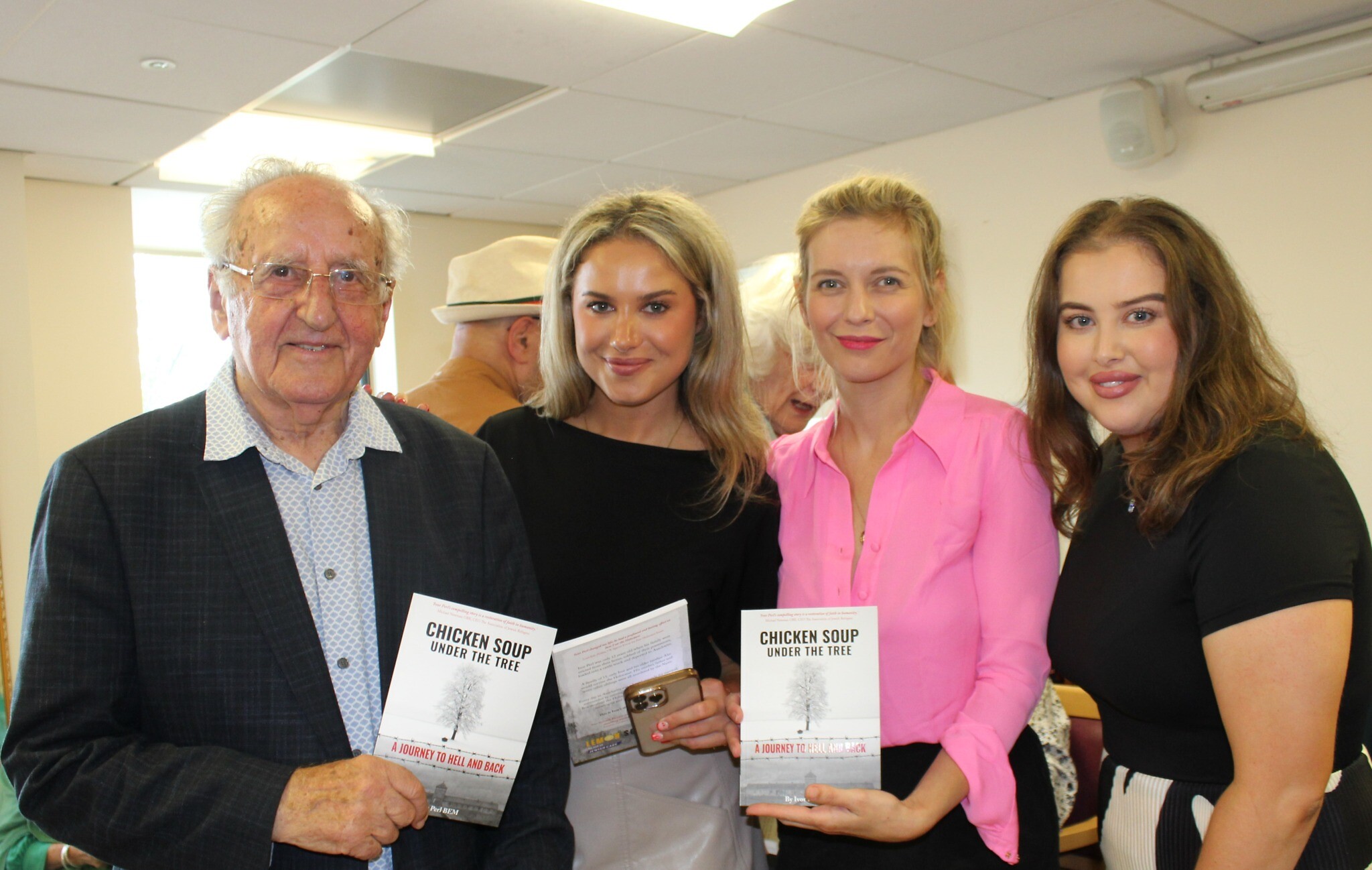
Towards the end of the war, Perl and Alec – now the sole survivors of their family – were forced to endure a 500-mile death march to Kaufering and Dachau concentration camps, with liberation finally arriving in May 1945. Perl was still just a child, a now-orphaned boy who, as he writes in his book, spent the day of what should have been his bar mitzvah looking out through the barbed wire at Auschwitz “praying to God to get me out of this hell.”
I ask if he feels his survival was down to luck, his determination to live – or something else.
“I once listened to a talk by two professors discussing how people survived the Holocaust and they came to the conclusion that nobody survived without luck,” he explains. “And I think to myself that is so, so true – but not everybody who had luck survived.
“For me, I don’t think luck is the right word but being so young actually helped me. If I had been my parents’ age, seeing what was happening to my family and my children, I would not have been able to bear it. But I was young and wanted to carry on. I wanted to live.”
His determination to do that was sharply brought to the fore when in the aftermath of liberation, the survivors gathered in a warehouse at the camp for the Yizkor prayer on Yom Kippur. For many it was the first time they had been able to acknowledge their losses and say the memorial prayer for loved ones.
Perl writes that as the prayer began, “tears poured out of me” before he ran from the service.
“That moment sticks in my memory,” he says. “Can you imagine, hundreds of people in there, all of whom had lost someone, the pain and the crying? Whenever I said a memorial prayer afterwards, this was the picture that came to my mind.”
Eight decades on, Perl is still coming to terms with the loss of his family and reveals that not a day passes by when he is not reminded of them. “Sometimes [when I see a religious family] the first thing that comes to my mind is that could have been my sister, my brother, my mother.”
It’s hard to fathom just what Perl has endured, but he was at least able to share some of that pain with his late brother Alec, who he describes as not only his best friend but also “the man who saved me from certain death many times.”
After the war, Perl and Alec arrived in England with ‘The Boys’, a group of nearly 800 orphaned child survivors of the Holocaust who were granted asylum by the British government. It was here that Perl began to build a new life for himself. At the age of 18 he met his late wife Rhoda; they were married in 1953. The couple settled in north-east London and had four children.
Perl, now a grandfather of six and with five great-grandchildren, says that for decades he tried to “keep the past as much as possible out of the way” and to instead “taste life and live life.”
He adds: “I was too young to think otherwise.”
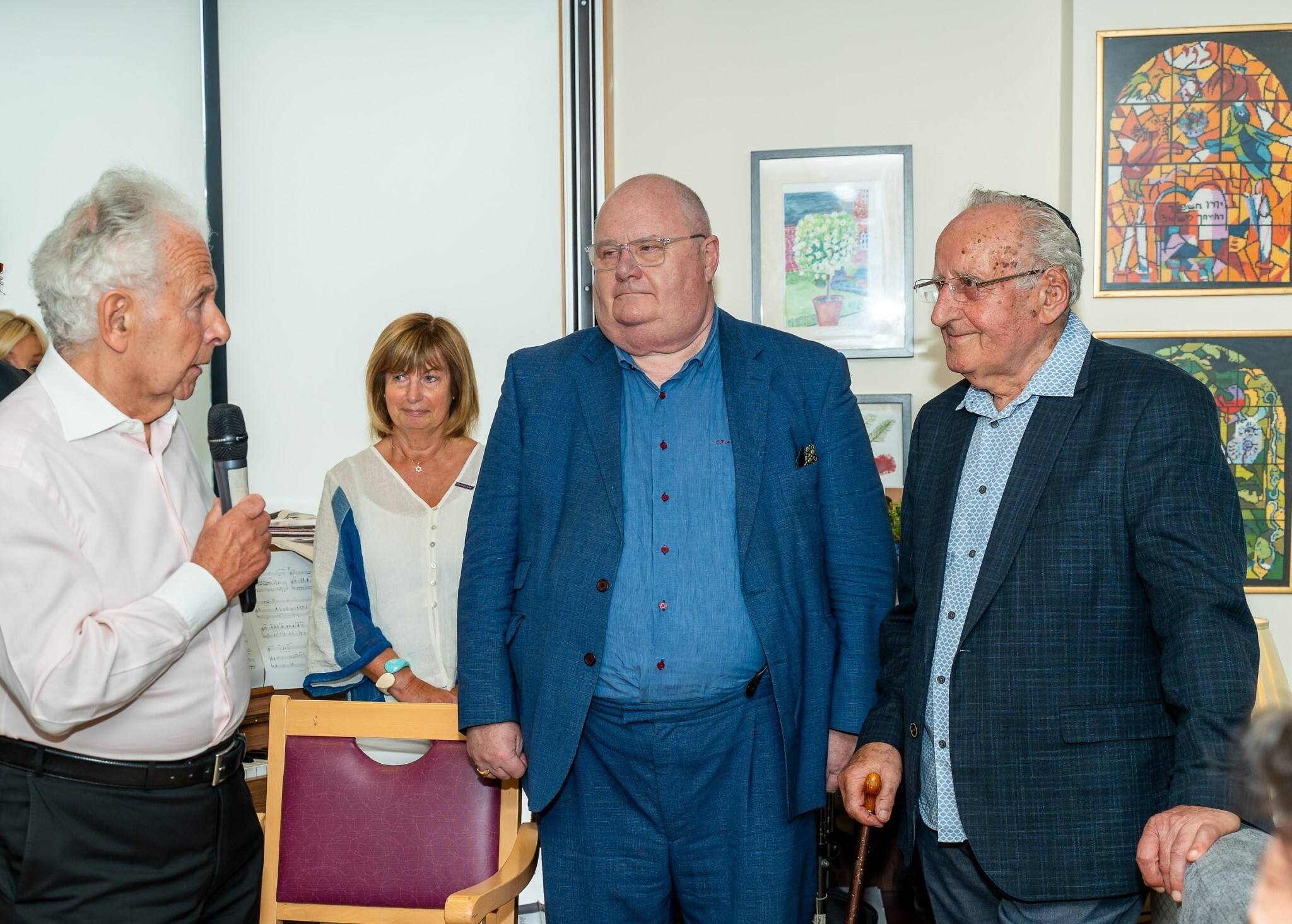
Fifty years would pass before Perl felt able to open up and tell his story. The first time he did so, having been asked to speak at a remembrance service hosted by his synagogue, Perl realised the impact his words could have on future generations. Since then, he has given more than 100 talks to schools, football clubs and large organisations about his experience and in 2016 was awarded a BEM for Holocaust education.
In recent years, Perl has returned both to Auschwitz and to his childhood home in Hungary. Both places conjure a mix of memories of a life that once was, of inhumanity but ultimately of survival.
Having witnessed and experienced all he has, what for Perl has been the biggest lesson he can take from life?
“That love and kindness will get you further than hatred,” he says. “But only if humanity learns from that.”
Chicken Soup Under The Tree: A Journey To Hell and Back by Ivor Perl is published by Lemon Soul, priced £8. Lemon Soul will donate £1 from every book purchased to Jewish Care. lemonsoul.com

Thank you for helping to make Jewish News the leading source of news and opinion for the UK Jewish community. Today we're asking for your invaluable help to continue putting our community first in everything we do.
For as little as £5 a month you can help sustain the vital work we do in celebrating and standing up for Jewish life in Britain.
Jewish News holds our community together and keeps us connected. Like a synagogue, it’s where people turn to feel part of something bigger. It also proudly shows the rest of Britain the vibrancy and rich culture of modern Jewish life.
You can make a quick and easy one-off or monthly contribution of £5, £10, £20 or any other sum you’re comfortable with.
100% of your donation will help us continue celebrating our community, in all its dynamic diversity...
Engaging
Being a community platform means so much more than producing a newspaper and website. One of our proudest roles is media partnering with our invaluable charities to amplify the outstanding work they do to help us all.
Celebrating
There’s no shortage of oys in the world but Jewish News takes every opportunity to celebrate the joys too, through projects like Night of Heroes, 40 Under 40 and other compelling countdowns that make the community kvell with pride.
Pioneering
In the first collaboration between media outlets from different faiths, Jewish News worked with British Muslim TV and Church Times to produce a list of young activists leading the way on interfaith understanding.
Campaigning
Royal Mail issued a stamp honouring Holocaust hero Sir Nicholas Winton after a Jewish News campaign attracted more than 100,000 backers. Jewish Newsalso produces special editions of the paper highlighting pressing issues including mental health and Holocaust remembrance.
Easy access
In an age when news is readily accessible, Jewish News provides high-quality content free online and offline, removing any financial barriers to connecting people.
Voice of our community to wider society
The Jewish News team regularly appears on TV, radio and on the pages of the national press to comment on stories about the Jewish community. Easy access to the paper on the streets of London also means Jewish News provides an invaluable window into the community for the country at large.
We hope you agree all this is worth preserving.


